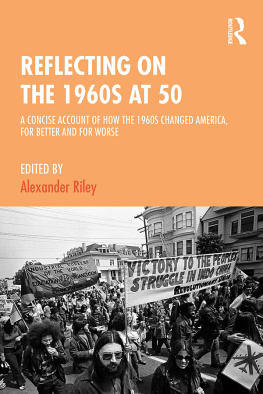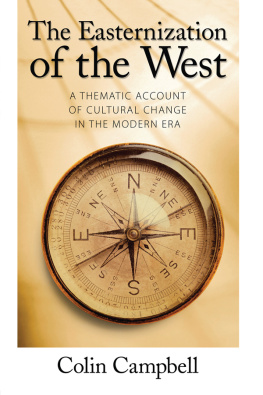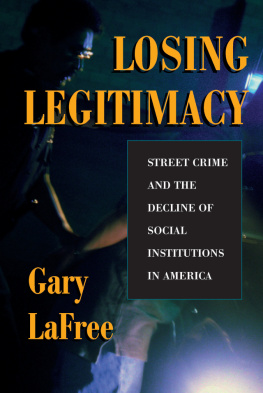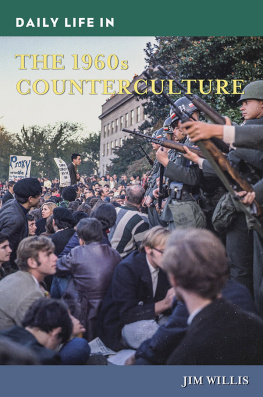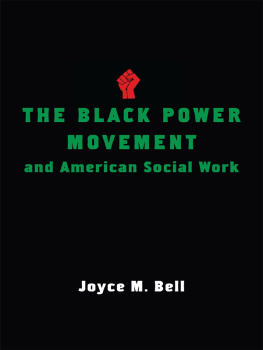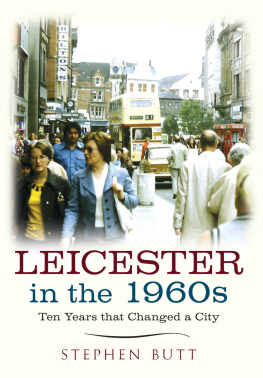Reflecting on the 1960s at 50
Reflecting on the 1960s at 50: A Concise Account of How the 1960s Changed America, for Better and for Worse is a punchy, conversational look at some of the most interesting pieces of cultural and social conflict from the 60s, reflected through the lens of our own vantage point today.
This approachable, informative volume uses transcripts of public interviews to provide the viewpoints of half a dozen nationally known scholars with long records of writing in scholarly and popular realms. They represent a range of disciplinary and political perspectives from the humanities to the social sciences and from the progressive left to the conservative right. These scholars offer their thoughts on:
- the place of youth in American society that emerged from the 60s
- the lingering contributions the counterculture made to American institutions and social life
- the legacy in contemporary America of the struggles over racial disparities in the 60s
- the ways in which the revolution of sexual mores and relations of that decade have affected marriage and family today
- the war in Vietnam and its effects on contemporary views of Americas military power and responsibility in the world
- the evolution of American state power and administration that was energized by Lyndon Johnsons Great Society.
This book will be of interest to students of American history and the history and politics of the 1960s as well as sociologists. It searches for meaning in a period that made major contributions to the shape of America as a country.
Alexander Riley is Professor of Sociology at Bucknell University, USA.
First published 2021
by Routledge
52 Vanderbilt Avenue, New York, NY 10017
and by Routledge
2 Park Square, Milton Park, Abingdon, Oxon, OX14 4RN
Routledge is an imprint of the Taylor & Francis Group, an informa business
2021 Taylor & Francis
The right of Alexander Riley to be identified as the author of the editorial material, and of the authors for their individual chapters, has been asserted in accordance with sections 77 and 78 of the Copyright, Designs and Patents Act 1988.
All rights reserved. No part of this book may be reprinted or reproduced or utilised in any form or by any electronic, mechanical, or other means, now known or hereafter invented, including photocopying and recording, or in any information storage or retrieval system, without permission in writing from the publishers.
Trademark notice: Product or corporate names may be trademarks or registered trademarks, and are used only for identification and explanation without intent to infringe.
Library of Congress Cataloging-in-Publication Data
Names: Riley, Alexander, editor.
Title: Reflecting on the 1960s at 50 : a concise account of how the 1960s changed America, for better and for worse / Edited by Alexander Riley.
Other titles: Reflecting on the nineteen sixties at fifty
Description: New York : Routledge, 2020. | Includes index. |
Identifiers: LCCN 2020023638 | ISBN 9780367486761 (paperback) |ISBN 9780367515379 (hardback) | ISBN 9781003054306 (ebook)
Subjects: LCSH: United StatesHistory19611969. | United StatesSocial conditions19601980. | United StatesPolitics and government19451989. | Social changeUnited StatesHistory20th century. | Nineteen sixties.
Classification: LCC E839.4 .R44 2020 | DDC 973.92dc23
LC record available at https://lccn.loc.gov/2020023638
ISBN: 978-0-367-51537-9 (hbk)
ISBN: 978-0-367-48676-1 (pbk)
ISBN: 978-1-003-05430-6 (ebk)
Mark Bauerlein is Professor of English at Emory University, USA, and senior editor at First Things. He is the author of The Dumbest Generation: How the Digital Age Stupefies Young Americans and Jeopardizes Our Future (2009).
June Carbone is the Robina Chair in Law, Science and Technology at the University of Minnesota Law School, USA. She is the co-author (with Naomi Cahn) of Red Families v. Blue Families: Legal Polarization and the Creation of Culture and Marriage Markets: How Inequality Is Remaking the American Family (2011).
Todd Gitlin is Professor of Journalism and Sociology at Columbia University, USA. He is the author of The Sixties: Years of Hope, Days of Rage (1993) and The Whole World Is Watching: Mass Media in the Making and the Unmaking of the New Left (2003). He is a former president of Students for a Democratic Society.
Charles Kesler is the Dengler-Dykema Distinguished Professor of Government at Claremont McKenna College, USA, and editor of the Claremont Review of Books. He is the author of I Am the Change: Barack Obama and the Crisis of Liberalism (2012) and the editor of Saving the Revolution: The Federalist Papers and the American Founding (1987).
Glenn Loury is the Merton P. Stoltz Professor of the Social Sciences and Professor of Economics at Brown University, USA. He is the author of Race, Incarceration and American Values and The Anatomy of Racial Inequality (2008).
Mark Moyar is the Director of the Office of Civilian-Military Cooperation at USAID and a senior fellow at the Foreign Policy Research Institute. He is the author of Triumph Forsaken: The Vietnam War, 19541965 (2009) and Phoenix and the Birds of Prey: Counterinsurgency and Counterterrorism in Vietnam (2007).
Thanks are due to many people who helped bring this project from the idea stage to a year-long campus symposium and now to the form of this book. May each of the following know of my deep gratitude, and may those I have unconscionably forgotten to mention forgive me the faultiness of my memory and the rules of brevity under which I labor here.
Our speakersTodd, Mark B., Mark M., Charles, June, and Glenn. What a joy it was to spend a few hours with each of you chatting about the past, present, and future of our beloved country.
John Bravman, the President of Bucknell University. How steadfast and invaluable was your support in this work.
Our Bucknell Program for American Leadership and Citizenship alumni community, whose dedication to Bucknell University is so deep and so strong. Without you, none of this would have happened.
Our wonderful students Isabella Carrega, Andrew Marinaccio, and Manning Marthus, who transcribed the recorded talks and helped in innumerable other ways at symposium eventsrunning mics back to audience members with questions, chasing down bottled water for speakers, and generally bringing their youthful enthusiasm and energy to our work.
Our colleagues in Publications, Print, and Mail who created the posters for the events, which we found so pleasing that we have preserved them here.
The Pineapple Inn, the Copper Beech Inn, and the Tawsty Flower, our splendid Lewisburg bed and breakfasts, who made sure our speakers were properly cared for during their stays with us.
The faculty affiliates of the Bucknell Program for American Leadership and CitizenshipChris Ellis, Bill Gruver, and Jennifer Silvaand other friends of the BPALCIan Ferguson, Ezra Kose, and Ahrum Leewho participated in the on-stage work during the symposium.
The Bucknell students and the local community members who came out to the events and thereby testified to the vibrant intellectual life on campus and in the surrounding area.
Erika Funke at WVIA and Mark Lawrence at our local WKOK AM station, for allowing us to spend time with you on-air discussing the symposium.

